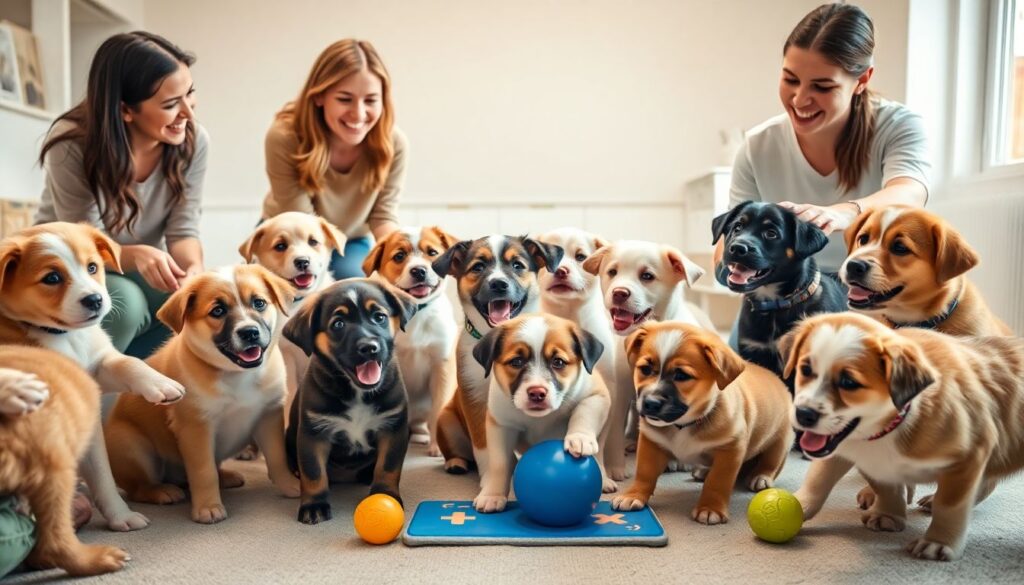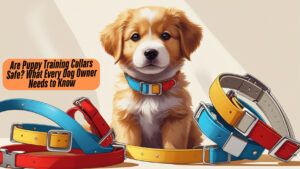10 Common Puppy Training Mistakes & How to Avoid Them: A Guide for New Owners
Setting out to train a puppy can be both exciting and daunting. Picture this: your new little furry friend is racing through your house, excitedly leaving a trail of chewed shoes and puddles in their wake. Early training is essential to prevent such chaos, turning your home into a happy and harmonious space.
Statistics reveal that up to 20% of shelter dogs are surrendered due to behavioral issues that arise from improper training. Avoiding common missteps can lead to a well-behaved companion. This article focuses on ten frequent puppy training mistakes and practical tips for steering clear of them.
Proper training lays the foundation for a strong bond between you and your puppy, ensuring a happier, healthier relationship for years to come.
Mistake #1: Inconsistent Training & Expectations
Lack of a Consistent Training Schedule
One common issue is owners inconsistently reinforcing commands. It leads to confusion and frustration for both puppy and owner. Tip: Create a daily training schedule and commit to it.
Mixed Signals from Multiple Family Members
Imagine one person allows counter surfing while another punishes it. This mixed messaging can be detrimental. Tip: Establish clear household rules and ensure everyone abides by them.
Unrealistic Expectations for a Puppy’s Developmental Stage
According to studies, puppies develop at different rates. Expecting a 12-week-old puppy to behave like a fully trained adult dog is unreasonable. Tip: Adjust your methods and expectations based on your puppy’s age and breed.
Mistake #2: Ignoring or Punishing Natural Puppy Behaviors
Punishing Chewing Instead of Providing Appropriate Outlets
When puppies chew furniture during teething, punishment won’t help. Tip: Provide safe chew toys and redirect their chewing onto acceptable items.
Failing to Understand Separation Anxiety
About 14% of dogs experience separation anxiety, which can lead to destructive behavior. Tip: Gradually train your puppy to be alone by increasing separation times slowly.
Harsh Punishment Methods
Veterinarians emphasize the power of positive reinforcement over harsh methods. Tip: Focus on rewarding good behavior rather than punishing undesirable actions.

Mistake #3: Lack of Socialization
Limited Exposure to Different Environments
Keeping puppies cooped up leads to fear or anxiety in new situations. Tip: Introduce your puppy to various sights, sounds, and environments.
Insufficient Interaction with Other Dogs
Without early interaction, puppies may struggle with social skills. Tip: Supervise controlled interactions with friendly, well-socialized dogs.
Mistake #4: Overlooking Basic Obedience Training
Neglecting Potty Training
A consistent potty training routine is crucial. Tip: Take your puppy outside on a regular schedule, especially after meals and naps.
Ignoring Leash Training
Many owners wait too long to start leash training. Tip: Begin early, using positive reinforcement as your puppy learns to walk nicely on a leash.
Forgetting Basic Commands (Sit, Stay, Come)
Skipping basic commands makes training harder later on. Tip: Use short, frequent training sessions to teach commands effectively.
Mistake #5: Using Reward-Based Training Inconsistently
Inconsistent Rewards
Inconsistent rewards confuse puppies. Tip: Use stable rewards, like treats or praise, to reinforce the desired behaviors.
Using the Wrong Type of Reward
Not every puppy responds the same way to rewards. Tip: Experiment with different treats, toys, or praise styles to find what your puppy loves.
Poor Timing of Rewards
Timing is everything. If you reward too late, your puppy won’t connect the behavior with the reward. Tip: Reward immediately after the desired action to solidify the link.
Mistake #6: Ignoring Behavioral Problems
Ignoring Excessive Barking
Barking often signals that something is wrong. Tip: Address the cause of barking and train your puppy to use alternative behavior.
Ignoring Jumping
Jumping can become a bad habit if left unchecked. Tip: Teach an alternative behavior, such as sitting, and reward it instead.
Ignoring Destructive Chewing
Ignoring destructive chewing can damage your home and belongings. Tip: Puppy-proof your space and provide appropriate chew toys to redirect chewing behavior.
Conclusion: A Well-Trained Puppy Equals a Happy Life
Recapping these ten common mistakes shows the importance of effective training. From setting consistent rules to understanding natural behaviors, these tips help create a better environment for your puppy and yourself.
The long-term benefits of solid puppy training can transform your relationship into a joyful partnership. Start training your puppy today for a brighter future together!




